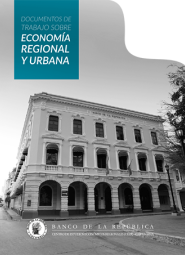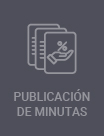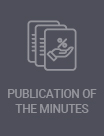An Auction-Based Test of Private Information in an Interdealer FX Market
La serie Borradores de Economía es una publicación de la Subgerencia de Estudios Económicos del Banco de la República. Los trabajos son de carácter provisional, las opiniones y posibles errores son responsabilidad exclusiva del autor y sus contenidos no comprometen al Banco de la República ni a su Junta Directiva.
The series Borradores de Economía (Working Papers on Economics) contributes to the dissemination and promotion of the work by researchers from the institution. On multiple occasions, these works have been the result of collaborative work with individuals from other national or international institutions. This series is indexed at Research Papers in Economics (RePEc)
|
The opinions contained in this document are the sole responsibility of the authors and do not commit Banco de la República or its Board of Directors. |
ABSTRACT
There are several financial markets where a few dealers trade a large share of total volume, while also having access to periodic auctions of the same asset conducted by a third party. For such a market, we derive a test of private information about the value of the asset that combines data on both bidding behavior and market trades. Our approach is to test for private versus common values, as defined in auction theory. We use changes in trading prices of extreme bidders before and after the auction to test the null hypothesis of private values (no private information) against the alternative of common values (private information). Additionally, we use a regression discontinuity design where we compare the behavior of dealers bidding right below and right above the auction's cutoff price to control for inventory effects. Our case study are foreign exchange auctions conducted by the Central Bank of Colombia during the period 2008-2014, and the corresponding interdealer market for Colombian Pesos against US dollars. Overall, our test rejects the null hypothesis. Specifically, information revealed to the bidders about their relative valuations has a subsequent effect on trading prices, at an hourly trading window, equivalent to 23% - 39% of the standard deviation of currency prices.





















































